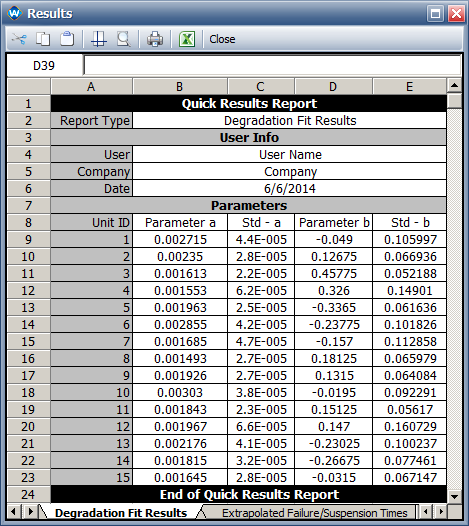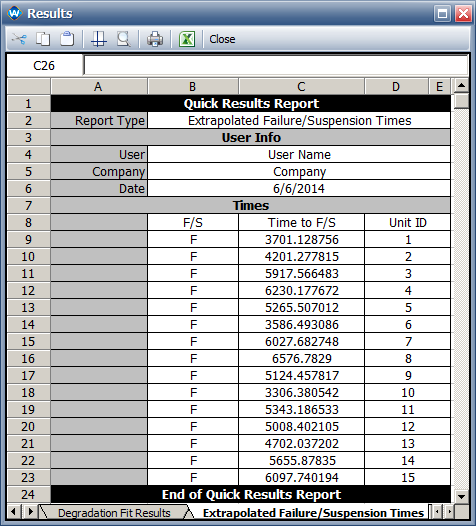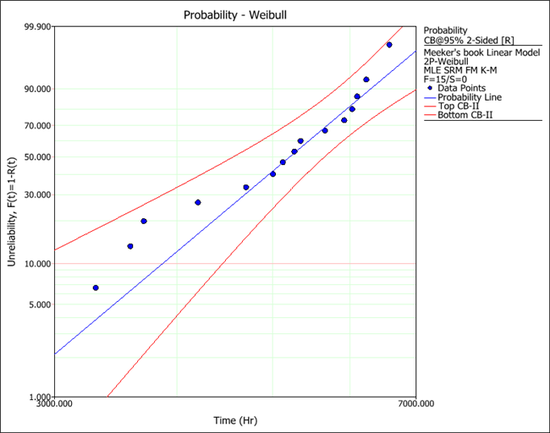Degradation Data Analysis with a Linear Regression Model: Difference between revisions
Jump to navigation
Jump to search
Kate Racaza (talk | contribs) (Created page with '{{Reference Example}} This example compares the results for a degradation analysis with a linear regression model. {{Reference_Example_Heading1}} The data set is from Exampl…') |
Kate Racaza (talk | contribs) No edit summary |
||
| Line 74: | Line 74: | ||
{{Reference_Example_Heading4}} | {{Reference_Example_Heading4}} | ||
* For the power regression model | |||
[[Image:DA_linear_model.png|center|]] | |||
* The predicted pseudo failure times. | |||
[[Image:DA_linear_extrapolated.png|center|]] | |||
: The predicted failure times in Weibull++ are slightly different from the values given in the book. Since the book does not provide the model parameters, we couldn’t compare the Weibulll++ results with the results in the book. | |||
* The fitted Weibull distribution | |||
[[Image:DA_linear_plot.png|center|550px|]] | |||
Revision as of 18:41, 6 June 2014
New format available! This reference is now available in a new format that offers faster page load, improved display for calculations and images and more targeted search.
As of January 2024, this Reliawiki page will not continue to be updated. Please update all links and bookmarks to the latest references at Weibull examples and Weibull reference examples.



